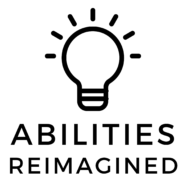Dyslexia (reading), Dysgraphia (writing), Dyscalculia (math)

Do you feel that your child is significantly behind his/her same-age peers in reading, writing, and/or math?
Given your perception of your child’s intelligence level, does this academic gap seem unexpected?
Do you feel like it takes substantially more repetition and time than peers for your child to grasp new concepts in reading, writing or, math?
Are you beginning to wonder if it’s not actually a “won’t do” problem, if it’s a “can’t do” problem?
Specific learning disabilities are disorders in one or more of the basic psychological processes involved in understanding or in using language, spoken or written, that may manifest itself in the imperfect ability to listen, think, speak, read, write, spell, or to do mathematical calculations. They are also called dyslexia (reading), dyscalculia (math), and dysgraphia (writing).
Students who have a specific learning disability may seem like bright and engaged students, but when it comes time to demonstrate understanding of taught material, they struggle immensely. Students with specific learning disabilities may begin by being very motivated to learn at school, but this motivation may diminish over time as they begin to notice their struggle learning new information. Despite reviewing the material over and over, the child simply does not retain the information.
There are many research based teaching methodologies and curriculums that are geared towards students with various specific learning disabilities. Our assessments for specific learning disabilities include:
- intelligence testing (verbal comprehension, visual spatial skills, fluid reasoning, working memory, and processing speed)
- academic achievement testing to include all areas of suspected disability area: reading (basic reading, reading fluency, reading comprehension), writing (written expression & spelling), or math (math calculation and math word problems)

